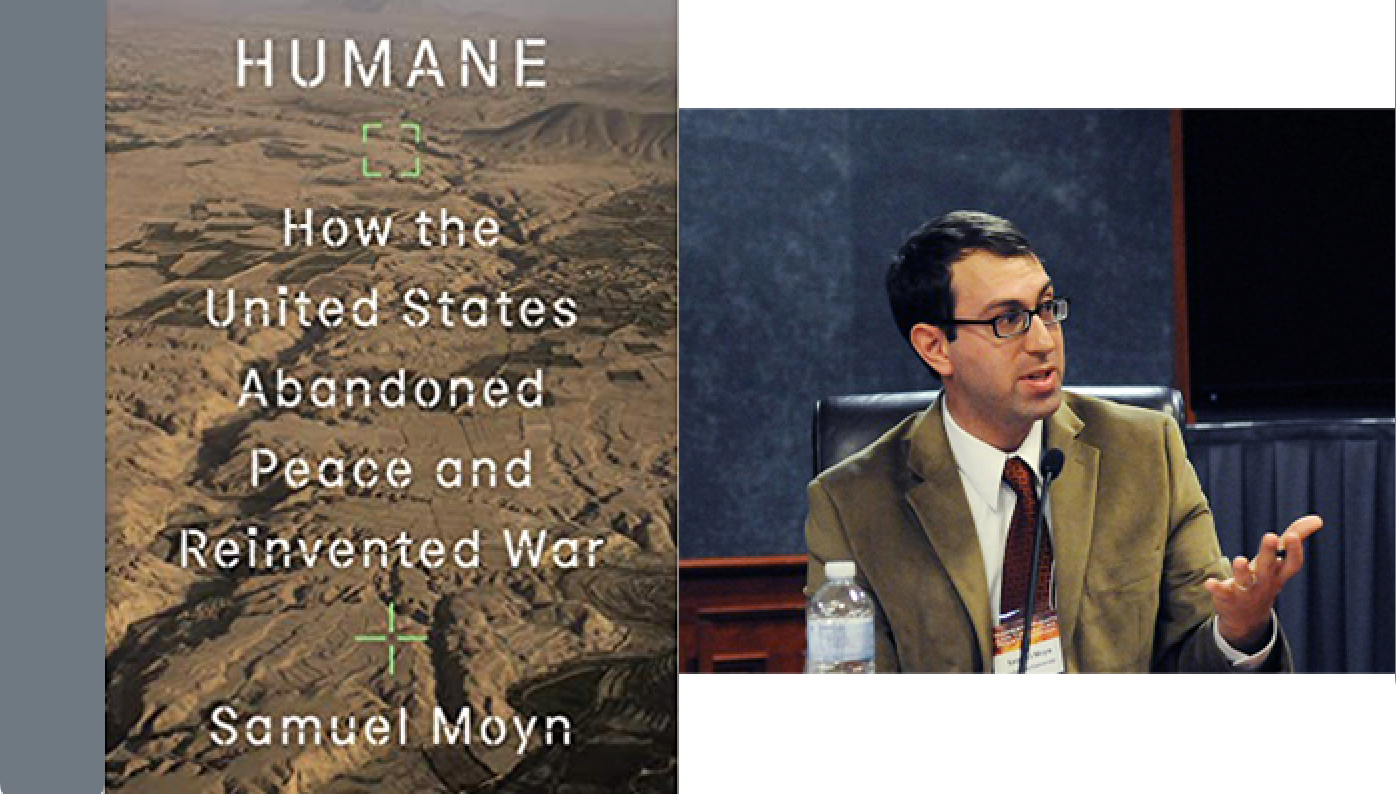School of Law Author Series 2020/21. Seminar 24 with Professor Samuel Moyn.
School of Law Author Series 2020/21 - Conversations with Donna Lyons. Seminar 24 with Professor Samuel Moyn.
Samuel Moyn, Henry R. Luce Professor of Jurisprudence at Yale Law School and Professor of History at Yale University, will speak about his new book ‘Humane: How the United States Abandoned Peace and Reinvented War’ (2021) at Trinity College Dublin on 8 September.
Date and time: 2.30pm (Dublin) / 9.30am (Connecticut), Friday, 10 September 2021.
Attendees can join the webinar directly via Zoom and the event will be simultaneously live-streamed on the Law School Facebook page. This event is free and open to all and there will be an opportunity for Q&A. The webinar can accommodate 500 attendees and participants will be admitted on a first come, first served basis. If the webinar fills to capacity, it will be possible to watch the Facebook Live Stream, and a recording will also be made available following the event. We look forward to seeing you there!
Samuel Moyn is Henry R. Luce Professor of Jurisprudence at Yale Law School and a Professor of History at Yale University. He has written several books in his fields of European intellectual history and human rights history, including The Last Utopia: Human Rights in History (2010), and edited or coedited a number of others. His most recent books are Christian Human Rights (2015), based on Mellon Distinguished Lectures at the University of Pennsylvania in fall 2014, and Not Enough: Human Rights in an Unequal World (2018). His newest book is Humane: How the United States Abandoned Peace and Reinvented War (Farrar, Straus, and Giroux, 2021). Over the years he has written in venues such as Boston Review, the Chronicle of Higher Education, Dissent, The Nation, The New Republic, the New York Times, and the Wall Street Journal.
About ‘Humane: How the United States Abandoned Peace and Reinvented War’.
In the years since 9/11, we have entered an age of endless war. With little debate or discussion, the United States carries out military operations around the globe. It hardly matters who’s president or whether liberals or conservatives operate the levers of power. The United States exercises dominion everywhere.
In Humane: How the United States Abandoned Peace and Reinvented War, Samuel Moyn asks a troubling but urgent question: What if efforts to make war more ethical―to ban torture and limit civilian casualties―have only shored up the military enterprise and made it sturdier? To advance this case, Moyn looks back at a century and a half of passionate arguments about the ethics of using force. In the nineteenth century, the founders of the Red Cross struggled mightily to make war less lethal even as they acknowledged its inevitability. Leo Tolstoy prominently opposed their efforts, reasoning that war needed to be abolished, not reformed―and over the subsequent century, a popular movement to abolish war flourished on both sides of the Atlantic. Eventually, however, reformers shifted their attention from opposing the crime of war to opposing war crimes, with fateful consequences.
The ramifications of this shift became apparent in the post-9/11 era. By that time, the US military had embraced the agenda of humane war, driven both by the availability of precision weaponry and the need to protect its image. The battle shifted from the streets to the courtroom, where the tactics of the war on terror were litigated but its foundational assumptions went without serious challenge. These trends only accelerated during the Obama and Trump presidencies. Even as the two administrations spoke of American power and morality in radically different tones, they ushered in the second decade of the “forever” war.
Humane is the story of how America went off to fight and never came back, and how armed combat was transformed from an imperfect tool for resolving disputes into an integral component of the modern condition. As American wars have become more humane, they have also become endless. This provocative book argues that this development might not represent progress at all.


